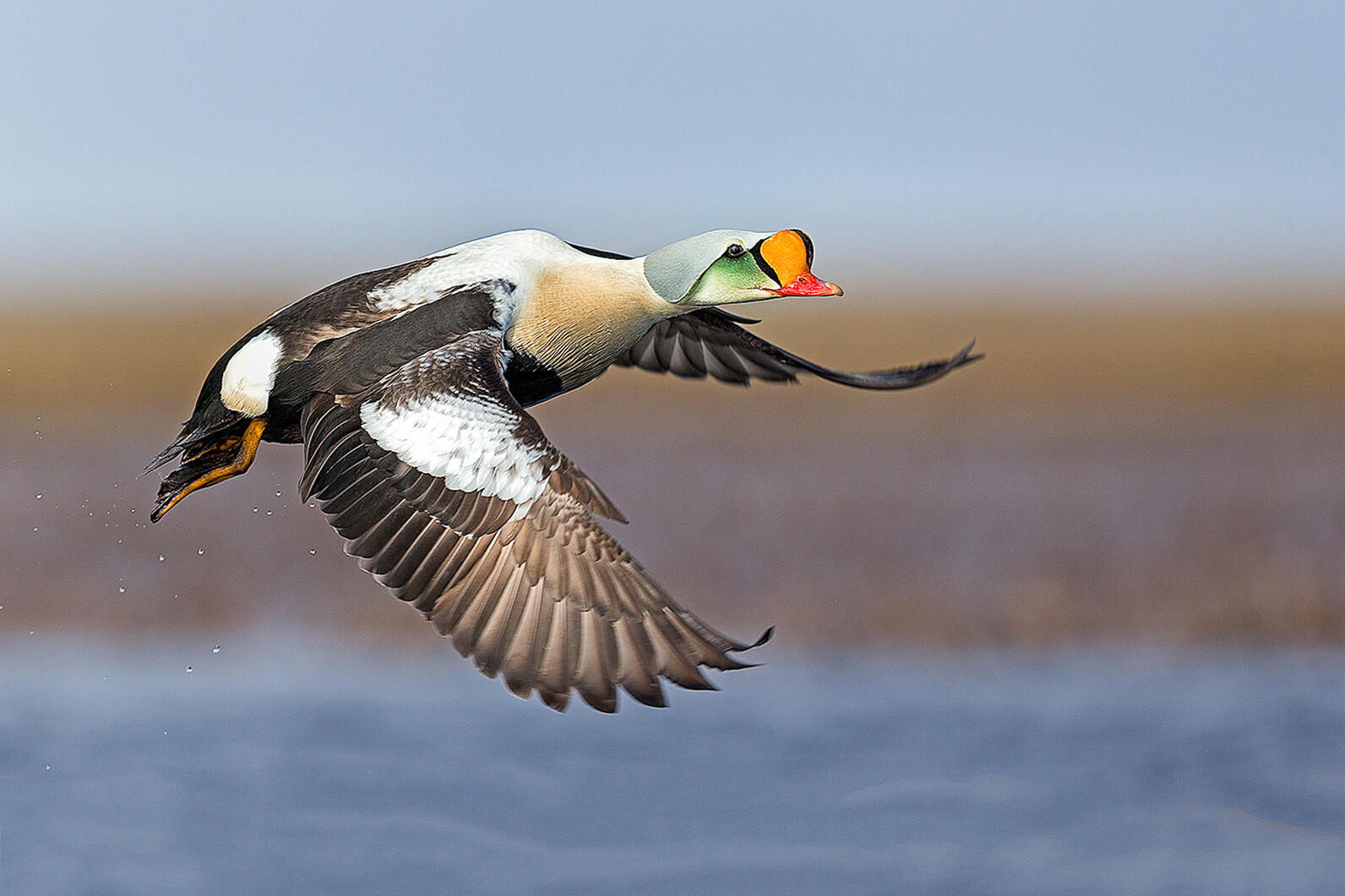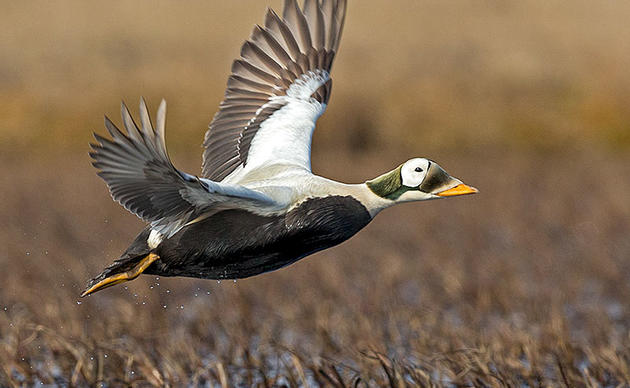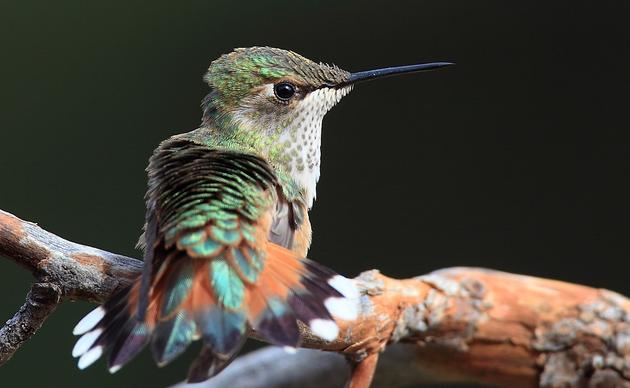The following is a joint press release issued by AUDUBON ALASKA, ALASKA WILDERNESS LEAGUE * EARTHJUSTICE * NATIONAL AUDUBON SOCIETY * NATIVE MOVEMENT * NORTHERN ALASKA ENVIRONMENTAL CENTER * SOVEREIGN I Ñ UPIAT FOR A LIVING ARCTIC * TRUSTEES FOR ALASKA.

ALASKA (August 15, 2020)—The federal Bureau of Land Management today released its final Environmental Impact Statement (FEIS) for ConocoPhillipsʼ proposed Willow Master Development Plan, a sprawling network of oil infrastructure on the North Slope. The agency chose to move ahead with the review process in the midst of the global pandemic, systematically excluding the voices of those who would be most negatively affected by the project, and denying multiple requests from organizations and tribes for suspension of the most recent comment period. In April, a coalition of Indigenous rights and environmental organizations condemned the decision to conduct inaccessible virtual public hearings.
This FEIS is the result of a process lacking key public input on issues of food security, social impacts of extractive industry, climate change, and threats to wildlife. BLM approved ConocoPhillipsʼ proposed project in the FEIS after failing to consider reasonable alternatives or meaningful ways to mitigate impacts. The agencyʼs racist silencing of Alaska Native voices and dismissal of concerns about public process has been mirrored by other oil and gas leasing processes on public lands across the nation, leaving little doubt of their willingness to cater to industry at the expense of the health and wellbeing of local communities. Rather than listening to local communities and taking the necessary time to produce an adequate analysis, the Trump Administration is rushing ahead to meet ConocoPhillips' timeline—driven by their desire to have rubber-stamped permits in hand before a potential administration change.
A project like Willow warrants the highest level of review and scrutiny, due to the significant impacts it would have on the entire region and the substantial greenhouse gas emissions it will cause. Willow will have particularly severe impacts on the globally important Teshekpuk Lake area, which provides calving grounds for the Teshekpuk Lake caribou herd — a vital food source for Nuiqsut residents, who already experience impacts on air and water quality due to existing oil and gas drilling—and is one of the most important goose molting habitats in the entire circumpolar Arctic. The Trump administration has worked to weaken the laws intended to mitigate the environmental and social harms of industrial projects, further eroding the integrity of this review process. We will continue to demand an accessible public process that recognizes the lived realities of people whose input is vital to shaping any new North Slope infrastructure.
"This process from the beginning was rushed and riddled with conflict of interest, technical issues, inaccessibility, and lack of ethical conduct by BLMʼs own principles and mission statement,” said Siqiñiq Maupin, Arctic Slope Organizer with Native Movement and co-founder of Sovereign Iñupiat for a Living Arctic. “As I read the portion of cultural, socio, and physical impacts, I felt sick to my stomach and pain in my heart. The blatant environmental racism perpetuated by BLM is shameful and needs to be rectified, not pushed
through."
“Willow is the necessary foothold needed by the industry to gain access for oil and gas drilling in the Teshekpuk Lake wetlands, a region important for millions of birds from across the globe,” said Natalie Dawson, VP and executive director for Audubon Alaska. “Instead of listening to the concerns of communities, addressing the scientific and economic uncertainties of expanding oil and gas development while the industry shrinks around the world, BLM is willing to cast its lot with short-sighted political leaders and corporations who are simultaneously starting to divest from Alaska.”
"BLM has used the global health crisis as an opportunity to promote corporate profit over people, and to further silence marginalized Alaskan voices, " said Lisa Baraff, Program Director at the Northern Alaska Environmental Center. "It's appalling that this process was allowed to move forward under these circumstances and given the realities of climate change. Federal agencies continue to prioritize corporate interests over the health and well-being of communities and landscapes they are mandated to represent."
“The Willow Master Development Plan will have permanent impacts on irreplaceable areas of ecological and cultural importance, and further contribute to the climate crisis,” said David Krause, assistant Alaska director for The Wilderness Society. “This project was rubber-stamped by BLM and fails to meaningfully disclose and offset the negative environmental effects that drilling will have on unique, wild places that merit protection. All this comes while BLM is simultaneously gutting the regionʼs land management plan in another blatant giveaway to the oil industry.”
“Willow is emblematic of the Trump administrationʼs pattern of ignoring sound science and dismissing the concerns of Indigenous peoples in order to turn wild Alaska into an industrial
park,” said Kristen Miller, conservation director at Alaska Wilderness League. “This project combined with the rush to lease the Arctic National Wildlife Refuge for oil drilling, the pending effort to remove Roadless Rule protections from the Tongass National Forest, a recent move to greenlight the massive Pebble Mine project that would jeopardize Bristol Bay, and a soon to be finalized new management plan for the National Petroleum Reserve-Alaska that would open more than 80% of this wildlife reserve for oil development — this is an all-out war on Alaska.”
“BLM has given ConocoPhillips what it wants in this EIS, regardless of concerns over its hurried public process during a pandemic, and the copious threats to public health, wildlife habitat, and the climate crisis,” said Bridget Psarianos, staff attorney with Trustees for Alaska. “Weʼre talking about a huge central processing facility, five drill sites, two airstrips, many miles of pipelines and roads, and other infrastructure that would degrade and pollute the very land and water people in the region rely on for their food, culture and health. Once again, the Trump administration has cleared the path for private oil company profits without fulfilling its obligation to the law.”
“The Willow Project is likely to have significant impacts on the Western Arctic region and the entire National Petroleum Reserve–Alaska—particularly the Teshekpuk Lake Special Area,”
said Earthjustice attorney Jeremy Lieb. “Itʼs time to stop ignoring the danger of ramping up greenhouse gas emissions through expanded oil and gas extraction — especially in the Arctic, where climate change is already causing temperatures to spike at twice the rate of the planet.”
###
Contact:
Rebecca Sentner, Audubon Alaska, rebecca.sentner@audubon.org, 907-276-7034



